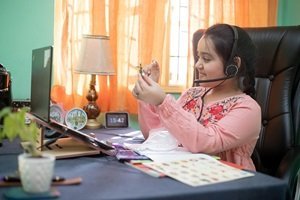What is Alternative Provision (AP)
Alternative Provision (AP) is: 'education arranged by local authorities for pupils who, because of exclusion, illness or other reasons, would not otherwise receive suitable education; education arranged by schools for pupils on a fixed period exclusion; and pupils being directed by schools to off-site provision to improve their behaviour'. (Alternative Provision Statutory Guidance for Local Authorities. DfE January 2013).
The needs of most children and young people can be met through mainstream provision, with a small proportion with the most complex needs requiring specialist support. This enables them to progress in their learning, going onto their next step towards a settled adulthood. Some children and young people however need education or training arranged outside a mainstream or specialist setting because otherwise they would not receive suitable education or training. This can be for a number of reasons:
- Pupils who are permanently excluded
- Children and young people who have medical and mental health needs
- Pupils at risk of suspension, on a fixed period suspension or directed by schools to offsite provision to support behavioural and emotional challenges
- Young people 16 - 25 with an Education Health and Care Plan (EHCP) or other vulnerabilities needing additional support to progress to a settled adulthood
- Children and young people unable to cope with a full-time curriculum, missing out on education or who find themselves marginalised from mainstream schools because of behavioural or other challenges.
Types of Alternative Provision
Alternative Provision can take many different forms, depending on the individual needs of the child. It is important the school or Local Authority service commissioning the provision is clear on whether the provision is a registered school with a DfE number, or an unregistered setting as this will have considerations regarding how many hours a pupil can access the provision. In all cases, the provision should be both efficient in its delivery of education and suitable to the child's age, ability, and aptitude; and to any special educational needs they may have.
Please refer to Hillingdon's AP Guidance 24-25 (PDF, 280 KB) for examples of registered and unregistered Alternative Provisions.
Introducing a Dynamic Purchasing System (DPS) will create a competitive environment for suppliers and ongoing assurance on value for money whilst also ensuring a breadth of provision will be available to best meet the needs of a diverse and fluid cohort of children and young people.
In terms of process, bids were evaluated against the criteria and methodology detailed within our ITT and specification documentation.
Successful suppliers have met the minimum quality requirements for admission onto the DPS.
Contracts have been awarded to the successful providers listed below and are categorised into different 'lots' depending on the provision that can be provided.
Lot Categories and Providers (PDF, 298 KB)
All teams within the Council must now use the providers on the DPS when seeking a placement in an alternative provision for a child or young person. A provider that is not on the DPS can only be sourced if none of these providers are able to meet the requirements of the request or meet the needs of the child.
The DPS allows for new entrants to join at any time, subject to them completing and passing the relevant qualification criteria. This ensures that there will be sufficient provision available to meet the needs of children and young people and will support high compliance standards. This also enables market development opportunities to keep up with changing demands pressure, and service development
Referral Process
Quality Assurance
To meet our quality assurance checks providers must work with the LA on an annual basis. The quality assurance includes:
- provisions to participate in an initial QA assessment before being added to the directory
- be expected to have an annual quality assurance visit from a local authority officer
- quality assurance visits will be conducted by a physical site visit, (where appropriate)
- and complete a quality assurance observation form at least annually.
Results of the LA's quality assurance will be made available to schools and commissioners, on request.
Hillingdon's Quality Assurance framework can be viewed here: Hillingdon’s Quality Assurance Framework for Alternative Provision (Word doc, 90 KB)
What is 'Good' Alternative Provision
The DfE describes good alternative provision as: 'that which appropriately meets the needs of pupils and enables them to achieve good educational attainment on par with their mainstream peers. All pupils must receive a good education, regardless of their circumstances or the settings in which they find themselves.
The DfE identifies that a good provision should:
- have a clear purpose with a focus on education and achievement as well as meeting the pupil's needs and rigorous assessment of progress;
- offer appropriate and challenging teaching in English, mathematics, and science (including IT) on par with mainstream education - unless this is being provided elsewhere within a package of provision;
- be suited to the pupil's capabilities, give pupils the opportunity to take appropriate qualifications and involve suitably qualified staff who can help pupils make excellent progress;
- and have good arrangements for working with other relevant services such as social care, educational psychology, child and adolescent mental health services, youth offending teams and drug support services etc.
Alternative provision should be good quality, registered where appropriate, and delivered by high quality staff with suitable training, experience, and safeguarding checks. It should have clearly defined objectives relating to personal and academic attainment. Where an intervention is part-time or temporary, to help minimise disruption to a pupil's education, it should complement and keep up with the pupil's current curriculum, timetable, and qualification route.





